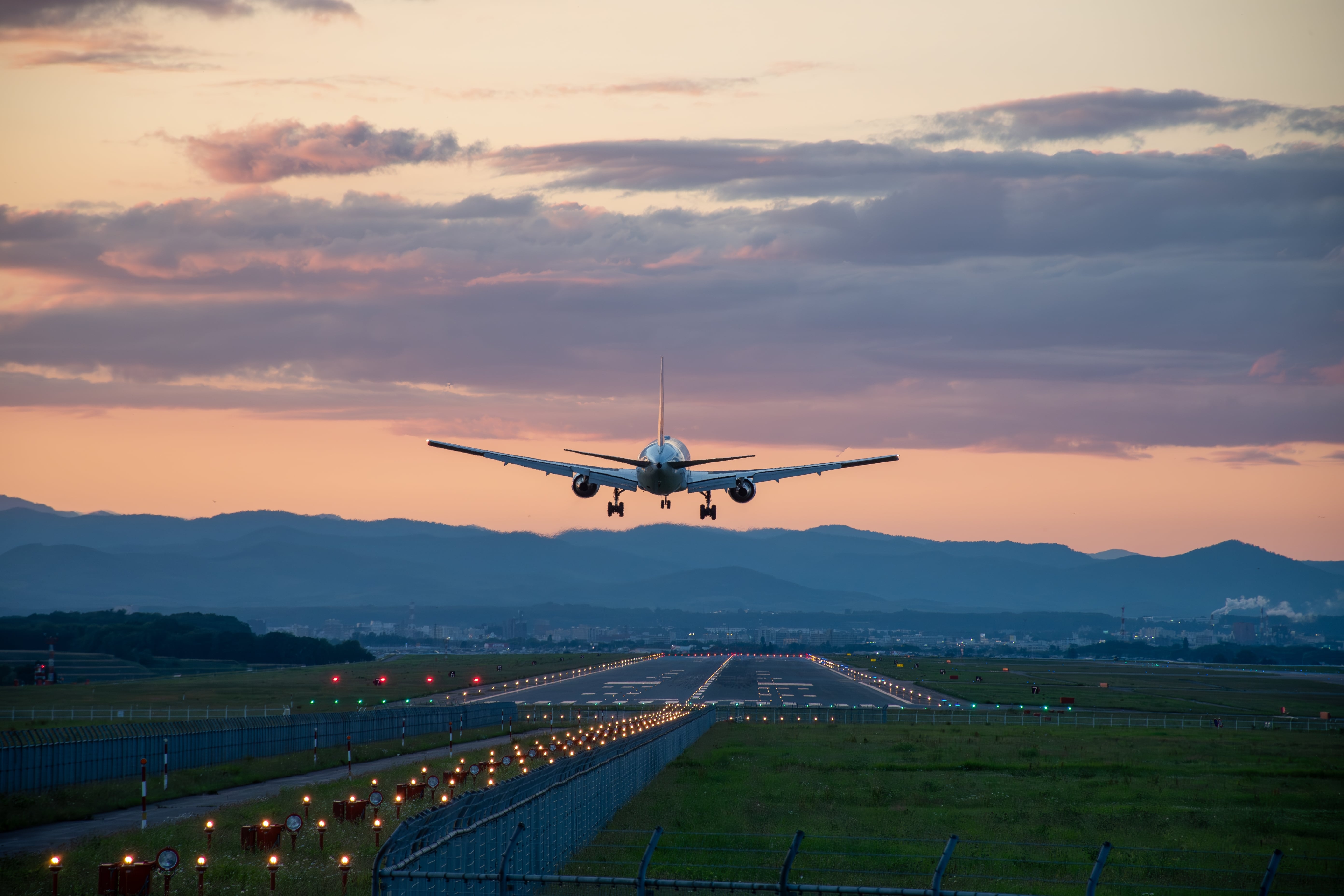Wellness Hacks For People Who Travel A Lot
Last Updated: 02 January 2026

Frequent travel is a normal part of life for many people, including CEOs, sales associates, consultants and those who work remotely. Constantly moving between destinations, long flights and irregular routines can take a toll on sleep, energy, digestion and overall well-being.
In this article, we share evidence-based health hacks for frequent travellers. Insights are provided by Vivere's Head of Nutrition, Yusra Serdaroglu Aydin, a registered dietitian with a background in nutrition, food engineering and culinary arts. Her approach is grounded in science and shaped by a strong understanding of personalised nutrition and the human microbiome, offering practical strategies to maintain health and energy while travelling.
Key Takeaways
Here are the five biggest takeaways from this article about wellness hacks for people who travel regularly:
Prioritising sleep helps reduce fatigue and support immune function.
Mindful meal planning and smart gut-friendly dining choices prevent digestive issues.
Staying hydrated and taking targeted supplements supports energy, immunity and overall well-being.
Regular movement, light exercise and maintaining small routines improve circulation, mood and resilience.
Incorporating NAD+ supplementation and personalised gut microbiome testing can help maintain energy, support digestion and keep your health on track while travelling.

Pack Smartly
Before your journey, packing the right items can help you maintain routines that support wellbeing. Bringing a favourite tea, a pair of trainers for walking, or a book can provide comfort in a new environment. Travel-friendly mats, resistance bands or other small exercise equipment allow you to continue workouts in your hotel room. Maintaining familiar habits while away from home helps reduce stress and keeps you feeling grounded.
Dress Comfortably
Comfortable clothing is essential for reducing discomfort while travelling. Dressing in layers allows you to adjust to changing temperatures in airports, planes and hotels, helping you avoid feeling too hot or too cold. Breathable fabrics improve comfort on long journeys, while compression socks support circulation and reduce the risk of travel-related swelling or oedema in the legs [1].
Manage Travel Stress
Travel can be mentally taxing, especially with tight schedules or unexpected delays. Deep breathing exercises, guided meditation apps and journaling are effective ways to manage stress. Staying organised with packing lists, travel itineraries and meal planning can also help reduce travel-related anxiety and maintain a sense of control.
Boost Energy
Frequent travel can leave you feeling more fatigued than you expect. NAD+, a molecule that supports cellular energy production, can provide a useful energy boost during busy travel days [2]. Vivere NAD+ injections are travel-friendly and can be self-administered in just a few minutes to help you stay energised and alert. Combining NAD+ with balanced nutrition, sleep and hydration maximises your overall travel performance.
Stay Hydrated
It is easy to forget to drink water while travelling, but dehydration can exacerbate fatigue, jet lag and headaches [3]. Carrying a reusable water bottle and sipping regularly throughout your journey helps maintain hydration. Air travel is especially dehydrating due to low cabin humidity, so it is important to drink consistently before, during and after your flight.
Supplements Can Be Helpful
Certain supplements can support your health while travelling and reduce the risk of unwanted issues. Some useful options include:
Probiotics to maintain gut health
Prebiotics and fibres to prevent travel-related constipation
Multivitamins and minerals to cover changes in nutrition intake and support immune function
Melatonin or magnesium to aid restful sleep
Plan Your Meals Ahead
Irregular meals, airport food and long periods without access to nutritious options can negatively affect energy and digestion. Packing nutrient-dense snacks such as nuts, seeds, fruit and wholegrains ensures steady energy throughout the day. When dining out, prioritise meals rich in protein, fibre and healthy fats, and limit highly processed foods and refined sugars to reduce bloating and fatigue.
Stay Active Even with Little Exercises
Extended periods of sitting on planes, trains or buses can impair circulation and increase stiffness and fatigue. Simple stretches, short walks in airports or hotel corridors, and bodyweight exercises improve circulation, metabolism and mental alertness. Even five to ten minutes of light activity every few hours can make a meaningful difference.
Prioritise Sleep
Disrupted sleep is one of the biggest challenges for frequent travellers. Long journeys, irregular schedules and unfamiliar environments can make it hard to get a good night’s sleep, causing fatigue, reduced focus and weakened immunity. Maintaining a consistent sleep routine, even while away from home, helps the body recover and stay energised. Avoid excessive caffeine and alcohol close to bedtime to prevent disturbances. Short rituals such as dimming lights or reading a few pages can help prepare your mind for rest.
Enjoy Local Food
Travel provides a great opportunity to explore different cuisines and discover unique food options. Experiencing a variety of flavours and ingredients can benefit your gut microbiome, supporting diversity and introducing new nutrients [4]. However, it is important to approach new foods mindfully to avoid digestive discomfort. Start with basic dishes similar to what you normally eat at home, and gradually try spiced, sauced or heavily topped meals to see how your digestion responds.
Vivere’s gut microbiome test can help identify which foods are most supportive for your gut and overall health, including over 300 specific options.
Nutritionist's Corner: Final Thoughts
“Frequent travel can challenge your routines and take a toll on both body and mind, but with mindful strategies, it is possible to stay healthy and energised on the move. Paying attention to sleep, nutrition, hydration, movement and stress management, while also using supportive measures like NAD+ supplementation and personalised gut microbiome insights, allows you to maintain balance no matter where your journey takes you. Building these small, consistent habits into your travel routine helps you feel more resilient, enjoy new experiences fully, and arrive at your destination ready to perform at your best”.
"Frequent travel can be hard on your routine and your body, but it doesn’t have to mean sacrificing your health or energy. With a mindful approach to sleep, hydration, movement and nutrition, it’s possible to stay grounded even on the move. By blending practical habits like smart packing, gut-friendly meals, regular activity and stress management with targeted support such as supplements and personalised insights, you can maintain resilience, enjoy new experiences fully and arrive ready to perform at your best, no matter where your journey takes you."
Vivere helps you take control of your health with personalised insights from state-of-the-art gut microbiome testing, nutritional guidance from our team, science-backed supplements, NAD+ injections and expert support. Sign up today and start living better, for longer.
Sources
[2] NAD+ metabolism: pathophysiologic mechanisms and therapeutic potential - Nature
[3] Up in the Air: Evidence of Dehydration Risk and Long-Haul Flight on Athletic Performance - PMC
[4] A healthy gastrointestinal microbiome is dependent on dietary diversity - ScienceDirect
Author

Yusra Serdaroglu Aydin, MSc RD
Head of Nutrition and Registered Dietitian
Yusra is a registered dietitian with a multidisciplinary background in nutrition, food engineering, and culinary arts. During her education, her curio...
Peer Reviewed by

Emily Stuart, RD
Dietitian
Emily is a Registered Dietitian, health writer, and professional chef with a unique blend of clinical, culinary, and communication expertise. She has...